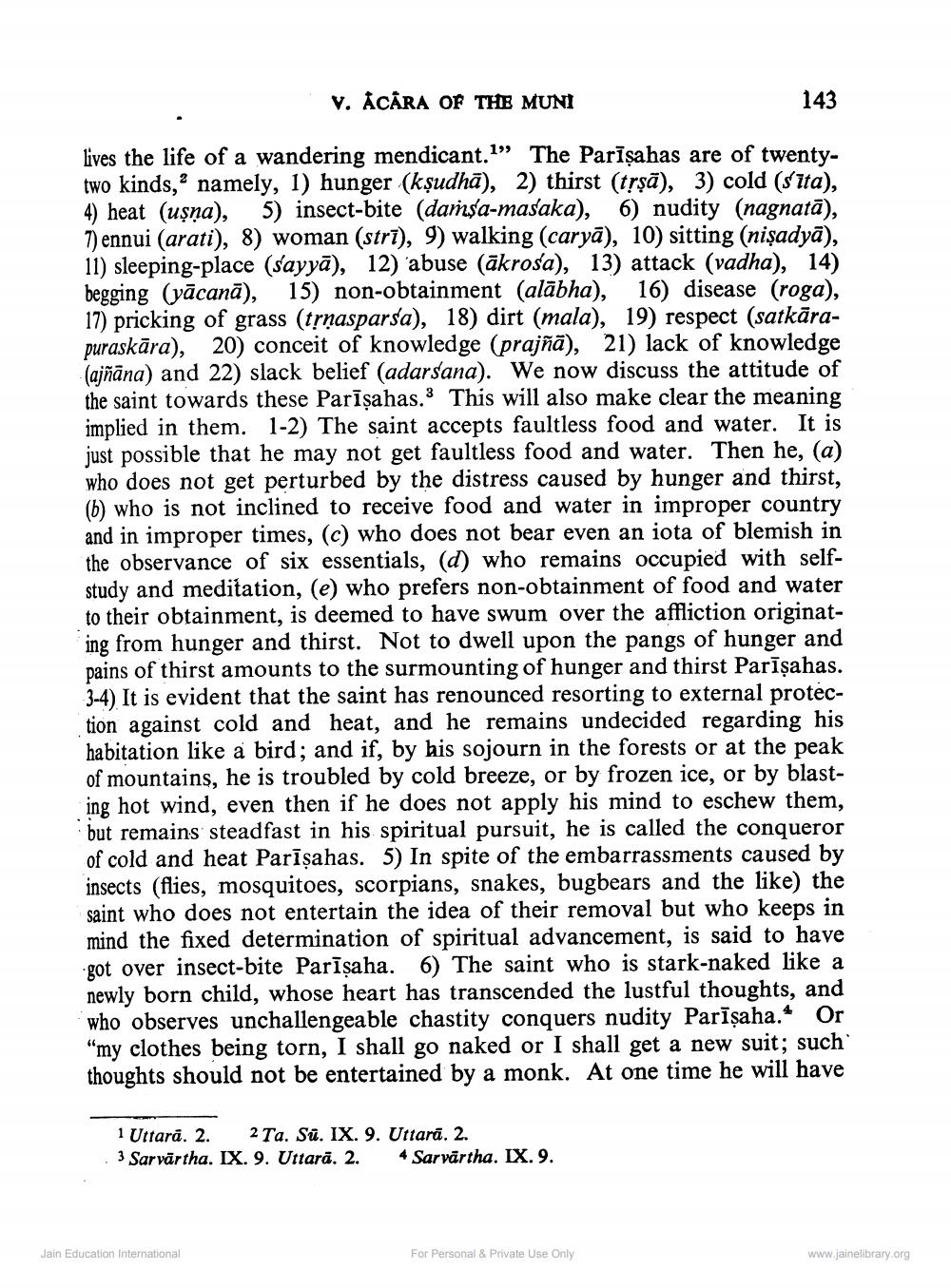________________
V. ACARA OF THE MUNI
143
lives the life of a wandering mendicant.1" The Parīsahas are of twentytwo kinds," namely, 1) hunger (kșudhā), 2) thirst (trşā), 3) cold (sita), 4) heat (uşņa), 5) insect bite (damsa-masaka), 6) nudity (nagnatā), 7) ennui (arati), 8) woman (strī), 9) walking (caryā), 10) sitting (nişadyā), 11) sleeping-place (sayyā), 12) abuse (ākrosa), 13) attack (vadha), 14) begging (yācanā) 15) non-obtainment (alābha), 16) disease (roga), 17) pricking of grass (trņasparsa), 18) dirt (mala), 19) respect (satkārapuraskāra), 20) conceit of knowledge (prajñā), 21) lack of knowledge (ajñāna) and 22) slack belief (adarsana). We now discuss the attitude of the saint towards these Parīşahas. This will also make clear the meaning implied in them. 1-2) The saint accepts faultless food and water. It is just possible that he may not get faultless food and water. Then he, (a) who does not get perturbed by the distress caused by hunger and thirst, (b) who is not inclined to receive food and water in improper country and in improper times, (c) who does not bear even an iota of blemish in the observance of six essentials, (d) who remains occupied with selfstudy and meditation, (e) who prefers non-obtainment of food and water to their obtainment, is deemed to have swum over the affliction originating from hunger and thirst. Not to dwell upon the pangs of hunger and pains of thirst amounts to the surmounting of hunger and thirst Parīşahas. 3-4) It is evident that the saint has renounced resorting to external protection against cold and heat, and he remains undecided regarding his habitation like a bird; and if, by his sojourn in the forests or at the peak of mountains, he is troubled by cold breeze, or by frozen ice, or by blasting hot wind, even then if he does not apply his mind to eschew them, but remains steadfast in his spiritual pursuit, he is called the conqueror of cold and heat Parīşahas. 5) In spite of the embarrassments caused by insects (flies, mosquitoes, scorpians, snakes, bugbears and the like) the saint who does not entertain the idea of their removal but who keeps in mind the fixed determination of spiritual advancement, is said to have got over insect-bite Parişaha. 6) The saint who is stark-naked newly born child, whose heart has transcended the lustful thoughts, and who observes unchallengeable chastity conquers nudity Parīşaha.* Or “my clothes being torn, I shall go naked or I shall get a new suit; such thoughts should not be entertained by a monk. At one time he will have
1 Uttara. 2. 2 Ta. Sü. IX. 9. Uttarā. 2. . 3 Sarvärtha. IX. 9. Uttară. 2. Sarvärtha. IX. 9.
Jain Education International
For Personal & Private Use Only
www.jainelibrary.org




